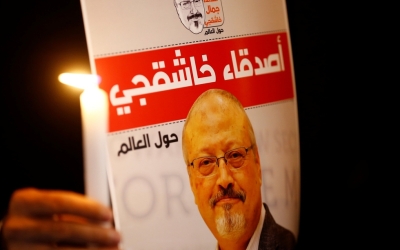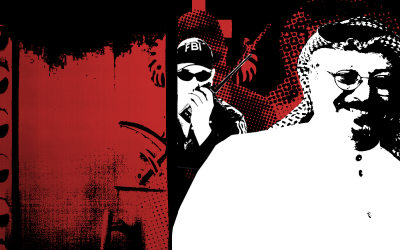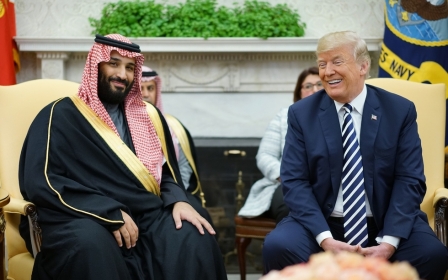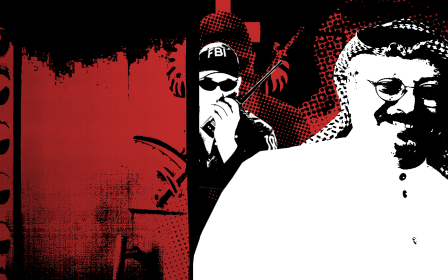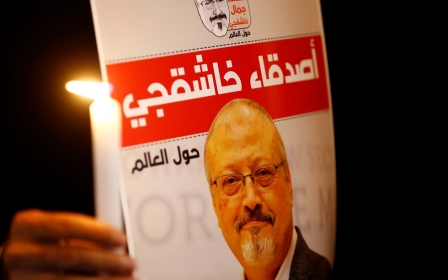Khashoggi murder 'happened under my watch,' MBS tells US broadcaster
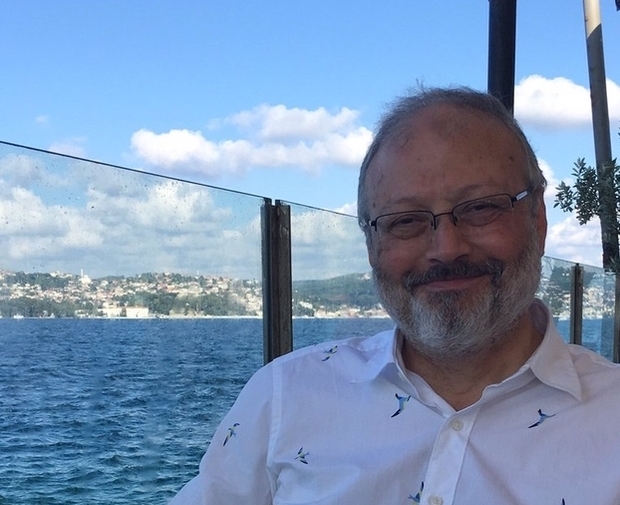
Saudi Arabia's crown prince has said he bears responsibility for the killing of journalist Jamal Khashoggi last year by Saudi operatives "because it happened under my watch," according to a PBS documentary to be broadcast next week.
Mohammed bin Salman, also known as MBS, has not spoken publicly about the killing inside the Saudi consulate in Istanbul which took place on 2 October last year.
The CIA and some Western governments believe he ordered the murder, but MBS told the US broadcaster the killing happened without his knowledge.
"It happened under my watch. I get all the responsibility, because it happened under my watch," he told PBS's Martin Smith, according to a preview of a documentary, "The Crown Prince of Saudi Arabia," set to air on 1 October, ahead of the first anniversary of Khashoggi's death.
Asked how the killing could happen without him knowing about it, Smith quotes MBS as saying: "We have 20 million people. We have three million government employees."
Smith asked whether the killers could have taken private government jets, to which the crown prince responded: "I have officials, ministers to follow things, and they're responsible. They have the authority to do that."
The crown prince was tracked down by Smith at an electric car race outside Riyadh in December 2018.
Smith describes the consequent exchange, which apparently took place off camera, in the preview of the documentary.
'Saudi Arabia is responsible under human rights law'
The killing sparked a global uproar, tarnishing MBS's image and imperilling ambitious plans to diversify the economy of the world's top oil exporter.
The crown prince has not visited the United States or Europe since the murder of Khashoggi, who was a columnist for Middle East Eye and the Washington Post.
After initial denials, the official Saudi narrative blamed the murder on rogue operatives.
The public prosecutor said the then-deputy intelligence chief ordered the repatriation of Khashoggi, a royal insider who became an outspoken critic, but the lead negotiator ordered him killed after discussions for his return failed.
Saud al-Qahtani, a former top royal adviser whom the Reuters news agency reported gave orders over Skype to the killers, briefed the hit team on Khashoggi's activities before the operation, the prosecutor said.
Earlier this year, a UN report found that Khashoggi was a victim of “an extrajudicial killing for which the state of Saudi Arabia is responsible under human rights law”.
The report found that “there is credible evidence, warranting further investigation of high-level Saudi officials’ individual liability, including the crown prince’s".
Eleven Saudi suspects have been put on trial in secretive proceedings but only a few hearings have been held.
'Completely astounding'
A senior US administration official said in June that the Trump administration was pressing Riyadh for "tangible progress" towards holding to account those behind the killing.
In the same month, US President Donald Trump said "nobody" had blamed the crown prince for the murder, following a meeting between the two at the G20 summit in Japan
On Tuesday, Kumi Naidoo, the secretary-general of Amnesty International, told MEE: "The way the Saudi crown prince - MBS - has handled this matter has been ridiculous, and the way Trump has backed him up has been completely astounding."
Khashoggi's body was dismembered and removed from the Saudi consulate, and his remains have not been found.
Middle East Eye delivers independent and unrivalled coverage and analysis of the Middle East, North Africa and beyond. To learn more about republishing this content and the associated fees, please fill out this form. More about MEE can be found here.


